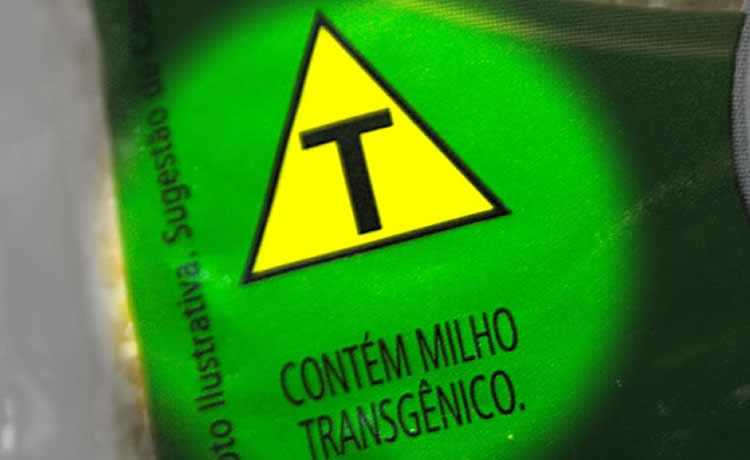Humus: what it is and what are its functions for the soil
Humus is the stable organic matter present in various types of soils, essential for life on Earth.

Unsplash image of LUM3N
Humus, humus, or wrongly written, "humus", is a term that dates back to the time of the ancient Romans, when it was used to designate the soil as a whole. Today, the term "humus" designates all stabilized organic matter (which does not undergo significant chemical or physical changes) present in the most diverse types of soils (clay, sandy, among others). Ollech, a scientist who studied the subject, defined humus, in 1890, as "all substances that are formed in the decomposition and fermentation of organic matter of plant and animal origin, or through the action of certain chemical agents on this organic matter, in form of amorphous organic compounds [which has no specific shape], non-volatile, non-greasy, more or less dark".
Although humus is stable, it is not static but dynamic, as it is constantly formed from plant and animal waste that is continuously decomposed by microorganisms.
Importance of humus

Umagem by Michal Hlaváč in Unsplash
The importance of humus to the soil is manifold. It provides nutrients to plants, regulates populations of micro-organisms and makes soils fertile. Humus is also a source of carbon, nitrogen, phosphorus, calcium, iron, manganese, among other essential substances for the healthy growth of vegetables.
It is able to prevent the penetration of toxic substances from the soil into plants; it retains moisture and keeps the soil temperature balanced. The role of humus for aquatic plant and animal life is still poorly studied, however, its importance is widely recognized.
Humus defines the color, texture, structure, moisture retention and aeration of the soil. Chemically, it influences the solubility of soil minerals, forming compounds with certain elements such as iron, which makes them more readily available for plant growth and increases the soil's buffering properties. Biologically, humus serves as an energy source for the development of microorganisms and improves the environment for the growth of superior plants. However, the functions of humus for plants have not yet been fully studied by science and, although there is the possibility of some harmful effects of humus for plants, the scientific consensus is that the benefits outweigh the harms.
Microorganisms
Without micro-organisms there would be no humus, and without humus life on planet Earth as we know it would be impossible.
Micro-organisms are the main responsible for the formation of humus from plant and animal waste. They continuously produce humus through decomposition and mineralization (transformation of organic matter into minerals). The role of microorganisms in the cycle of organic matter in the soil, as well as in nature in general, is indispensable. Without the transformation of animal and plant waste into humus, all the essential elements would be stored in these dead organisms and could not be reused.
Types of humus

Susann Mielke image by Pixabay
The best known forms of humus are those found in gardens. However, there are different types of humus, even varieties that are not used for planting, but for industrial purposes.
The humus present in coal and peat is used as a fuel source and has been one of the main agents in the development of modern industrial civilization. The humus present in oil, for example, has an important economic function. But, generally speaking, humus is separated into four categories:
brown humus:
Found in living vegetation, in newly fallen organic matter (burlap), in peat, in decaying seagrasses on the banks of water bodies and where fungi grow.
Black humus:
Generally found in an active state of decomposition in deeper soil layers, in decaying forest leaves and woods, in animal manure, in swamp peat and in muds.
Transfer humus:
It is found in water from rivers, lakes, springs and rainwater.
Fossil humus:
It is humus found in the form of lignite, brown coal and other carbon deposits, as well as in many minerals such as hydrated iron and manganese ores.
- Minhocarium: what it is for and how it works
earthworm humus

Image: Compost with earthworms by SuSanA Secretariat is licensed under (CC BY 2.0)
"Earthworm humus" is the expression used to designate the humus resulting from the organic matter decomposed by the digestive process of the earthworms, forming a natural compost. Earthworms facilitate the work of microorganisms by breaking down organic matter into smaller pieces; and for this reason they have been used as a way to enhance the formation of humus, a practice known as vermicomposting. Learn more about this topic in the articles: "Vermicomposting: what it is and how it works", "Earthworm: environmental importance in nature and at home" and "How to create Californian compost worms".
Homemade humus, recycling garbage
Through composting, it is possible to transform all organic waste produced at home into a very rich humus. The advantage of this practice is that, in addition to acquiring fertilizer for the plants, you reduce the amount of waste that would be sent to landfills and dumps and also avoid the emission of greenhouse gases into the atmosphere. Find out how to make your own humus in the article: "What is compost and how to make it".- Home composting: how to do it and benefits
- What is compost and how to make it
Humus, the soil decontaminant
The contamination of soils by heavy metals such as chromium, lead and copper, among others, is a matter of great concern for human health and the environment. Many alternatives have already been tested to prevent the damage of these metals to the soil and groundwater, but humus has proved to be one of the most efficient, as it can be made at home, with organic materials and, with the help of earthworms, become a fertilizer for the soil.
According to the master's thesis by chemist Leandro Antunes Mendes, vermicomposting, which is the process of producing earthworm humus, is very effective in soil decontamination.
In a survey conducted at the Environmental Chemistry Laboratory of the São Carlos Institute of Chemistry (IQSC) at USP, with the title of Use of vermicompost for the remediation of soils contaminated with chromium, copper and lead, tests have shown that composting can replace solvents (pollutants used in the decontamination of soils that contain heavy metals). This is because the humus generated in the process prevents leaching (the loading of substances into the water table), in addition to making the metals not available in the environment, according to the researcher.










